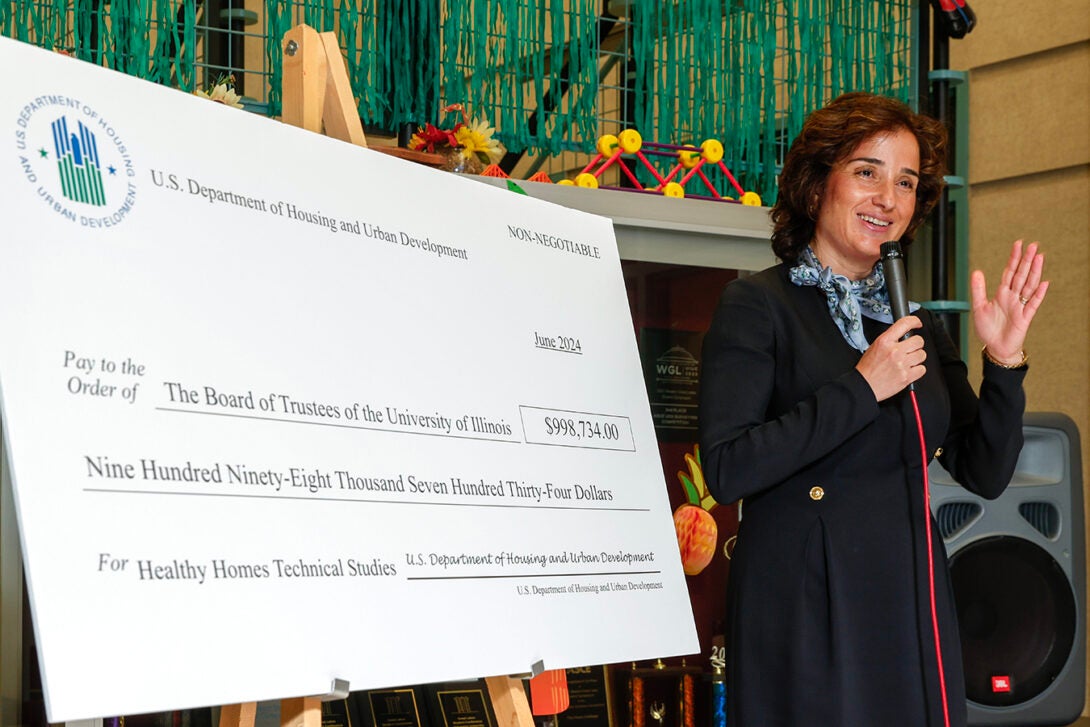Aslihan Karatas awarded nearly $1 million from HUD
1

Dr. Aslihan Karatas, from the Department of Civil, Materials, and Environmental Engineering, has been awarded a new three-year grant of nearly $1 million from the Department of Housing and Urban Development’s (HUD) Healthy Homes Technical Studies program for the project titled “Advancing Urban Resilience: The Mold Map Development for Predictive Risk Assessment.”
Karatas is collaborating on this project with Dr. Andrew Foell from UIC’s College of Social Work, Dr. Michael Cailas and Dr. Apostolis Sambanis from UIC’s College of Public Health, and community partner Gamaliel of Metro Chicago.
The project is geared toward developing a user-friendly cost-effective predictive tool for community organizations and city health officials to identify and map houses at-risk of hidden mold growth without having to go through costly physical mold inspection.
“We are collaborating to support a community in Chicago’s east end of Pilsen by inspecting 100 houses for mold issues, a significant concern for overburdened communities,” said Karatas, director of the Built Environment and Infrastructure Laboratory at UIC. “Thanks to the generous grant from HUD, we will also provide necessary mold remediation, whether minor or major, based on their specific needs.”
The researchers plan collect data that will help them understand how they can predict the mold occurrences in those neighborhoods. Right now, there are many variables to consider and it’s difficult to know exactly what triggers the occurrences.
“When you see mold on the walls, it’s too late to remediate it or it’s too expensive. We are trying to find a way to predict it before it becomes a major issue, which will save money on the cost of repairing those houses and more importantly the health of the occupants,” she said.
“All of my work starts with the foundation that housing is a major factor that impacts our health, and I’m really excited to collaborate with folks from engineering and public health to address these really complex challenges related to health and housing that are not achievable with isolated disciplines,” Foell said.
“All of the engineering problems we work on are interdisciplinary and it’s great to see us collaborating with the College of Social Work and the School of Public Health,” added Dean Peter Nelson. “We appreciate HUD for the great work it does year in year out and for collaborating with us on some of their important problems.”
One of the priorities in HUD’s national strategic plan is sustainable housing, which includes environmental justice and health as housing. This is where the Health Homes Technical Studies grant comes in and how it incorporates the researchers at UIC.
“The quality of our housing determines our health outcomes, and we are getting that from the research of our partners, which helps us demonstrate to the communities and partners how housing impacts the health outcomes of people,” said HUD Field Office Director Kimberly Dana. “We intend to use the conclusions of your work to address the residential health needs of many different types of housing.”